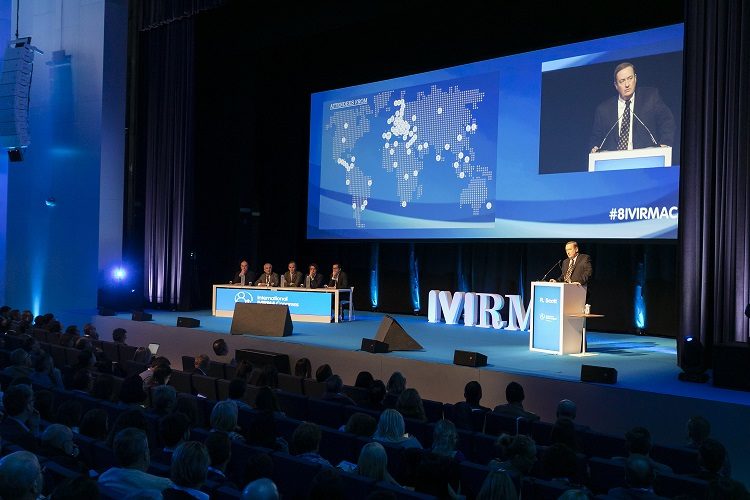
- These particles are a promising research tool due to their fundamental role in the communication between embryo and endometrium and their potential to serve as a biomarker
MALLORCA, 4th APRIL, 2019
Since the beginning of reproductive medicine, the idea of “a better embryo equalling better pregnancy outcomes” has been taken as an unquestionable truth. As a result, special focus has been placed on embryology laboratories to improve embryo selection methods and to opt for those embryos with the greatest potential for implantation. In this sense, the poster presented by IVI at the 8th International IVIRMA Congress on extracellular vesicles opens up a new method to improve this selection and, therefore, to increase success rates in reproductive treatments.
The poster, entitled “Extracellular vesicles can be isolated from culture media with and without exposure to human preimplantation embryos”, led by Diego Marin, PhD student at the IVIRMA group’s headquarters in New Jersey, and Dr. Richard T. Scott, IVIRMA’s CEO and project mentor, was created with the aim of searching for a biomarker that allows the optimization of the embryo selection process using a non-invasive method, and thus increasing embryo implantation rates, in this case euploids –those containing 46 normal chromosomes–, which currently stand at 70%.
“Extracellular vesicles are particles derived from bilayer membrane cells that secrete molecules and, as has been demonstrated, play a fundamental role in intercellular communication. Given that the dialogue between the embryo and the endometrium is crucial for correct implantation and a normal pregnancy to term, we want to demonstrate that these extracellular vesicles secreted by the embryo before its implantation play a central role in this communication and, therefore, can become potential biomarkers for embryonic reproductive competency”, said Prof. Juan Antonio García – Velasco, Scientific Director of the 8th International IVIRMA Congress.
This is a fairly novel research topic –only studied for two years–, and therefore, in the long term, the aim is to identify these vesicles, isolate them from the culture medium and analyse them to see the effects they can have on the embryo, in this case, an euploid embryo, thus optimizing the potential of these vesicles in the field of assisted reproduction.
“Although there are studies on the relationship between these vesicles and their application in the treatment of kidney disease or tumoural conditions, it had not been applied in the field of reproductive medicine until recently. Embryonic extracellular vesicles offer an encouraging and non-invasive opportunity to assess the viability of the embryo that could help improve embryo selection and understand the molecular dialogue between embryo and endometrium, significantly increasing pregnancy outcomes, by combining this promising tool with other diagnostic technologies. However, more complex studies are needed to implement their profile as a diagnostic test for embryo selection”, added Prof. García – Velasco.
Searching for the reproductive panacea
Due to its immediate accessibility, the embryo’s morphology has become the standard method for embryo selection. Later, Preimplantation Genetic Testing for Aneuploidy (PGT-A) revolutionized the field by taking embryo selection beyond its appearance and focusing on its genetic makeup. Thus, it could be demonstrated that the transfer of chromosomally normal embryos leads to higher implantation rates, lower rates of miscarriage and shorter times to achieve pregnancy.
As a result, several attempts have been made to find solid and measurable variables that can be established as biomarkers of embryonic competency and thus further improve reproductive outcomes. At this point we have the implementation of devices such as the EmbryoScope, which has allowed the study of morphokinetic parameters.
Morphology, genetic constitution and morphokinetic parameters, despite the remarkable evolutionary improvement they have offered, outline the current implantation rate scenario: About a third of chromosomally normal embryos still fail to implant in the uterus.
“Now, we go a step further and focus on the study of extracellular vesicles with the main objective of increasing the rate of embryo implantation with detailed knowledge of the possibilities of these particles and their influence on the reproductive process”, concluded Prof. García – Velasco.
